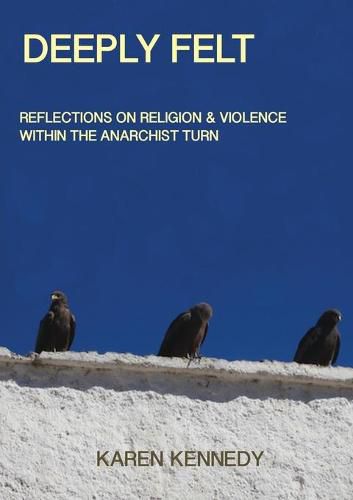Readings Newsletter
Become a Readings Member to make your shopping experience even easier.
Sign in or sign up for free!
You’re not far away from qualifying for FREE standard shipping within Australia
You’ve qualified for FREE standard shipping within Australia
The cart is loading…






This title is printed to order. This book may have been self-published. If so, we cannot guarantee the quality of the content. In the main most books will have gone through the editing process however some may not. We therefore suggest that you be aware of this before ordering this book. If in doubt check either the author or publisher’s details as we are unable to accept any returns unless they are faulty. Please contact us if you have any questions.
This book is a reflection upon the "anarchist turn". It takes three 'newish' anarchists and interprets their work following the method of exegesis. Two questions guide the work. What can the anarchist turn tell us about revolution and nonviolence and what can it tell us about contemporary religion? The protagonists are David Graeber, Timothy Morton and Simon Critchley. This book is of interest to anarchists, activists, and philosophers. Indeed anyone doing and interested in interdisciplinary approaches to important cultural questions and the building of nonviolent cultures should find at least parts of this book interesting.
$9.00 standard shipping within Australia
FREE standard shipping within Australia for orders over $100.00
Express & International shipping calculated at checkout
This title is printed to order. This book may have been self-published. If so, we cannot guarantee the quality of the content. In the main most books will have gone through the editing process however some may not. We therefore suggest that you be aware of this before ordering this book. If in doubt check either the author or publisher’s details as we are unable to accept any returns unless they are faulty. Please contact us if you have any questions.
This book is a reflection upon the "anarchist turn". It takes three 'newish' anarchists and interprets their work following the method of exegesis. Two questions guide the work. What can the anarchist turn tell us about revolution and nonviolence and what can it tell us about contemporary religion? The protagonists are David Graeber, Timothy Morton and Simon Critchley. This book is of interest to anarchists, activists, and philosophers. Indeed anyone doing and interested in interdisciplinary approaches to important cultural questions and the building of nonviolent cultures should find at least parts of this book interesting.